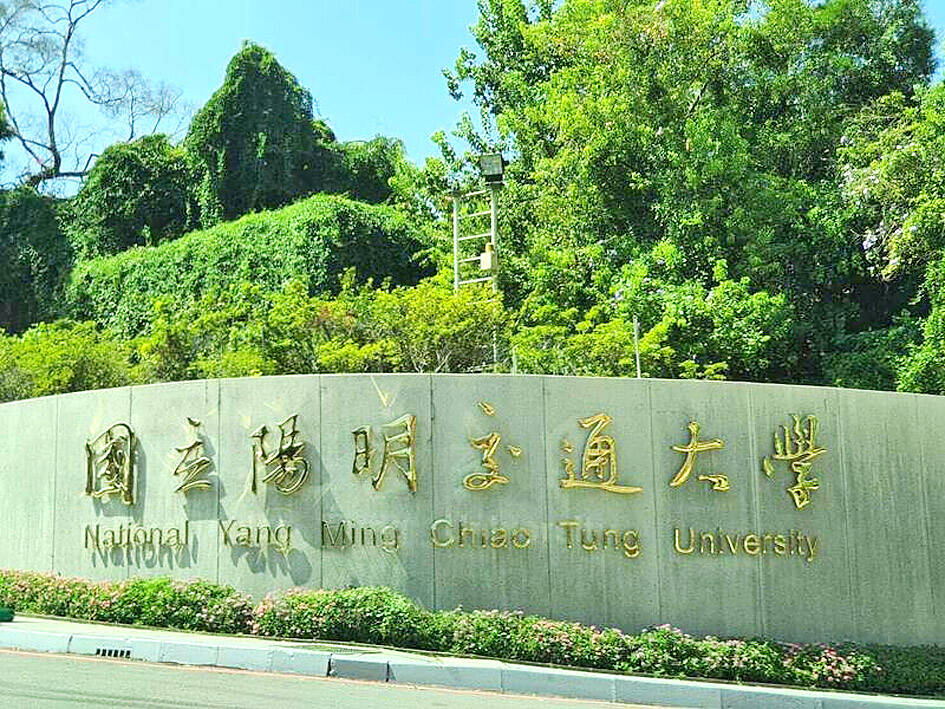While severe deterioration of oral health is closely linked to cognitive dysfunction, the correlation does not necessarily mean there is a causal link, a study led by a research team at National Yang Ming Chiao Tung University’s Department of Dentistry said.
More than 300,000 people in Taiwan have dementia, with 96 percent over the age of 65, Ministry of Health and Welfare data showed.
Dementia is an umbrella term for a variety of diseases, rather than an aging phenomenon, with Alzheimer’s a well-known form. In addition to memory loss, dementia can also affect cognitive functions, personality and behavior.

Photo: Taipei Times
“Oral-cognitive links” have been widely researched, but the associations between deteriorating oral health and the risks of dementia remain unclear, the study said.
A systematic review of 28 research papers on oral-cognitive links published in the past five years showed that most focused on the relationship that periodontal diseases and the oral microbiome have with Alzheimer’s disease, it said.
Abundant evidence supports the idea that serious oral health problems, such as severe periodontal disease and extensive tooth loss, are strongly correlated with cognitive dysfunction, it said.
However, Lin Chia-shu (林嘉澍), a professor in the department, said that there are wide discrepancies in the relationship between oral health and cognitive dysfunction, adding that the strong correlation does not necessarily mean causation.
For example, while tooth loss is related to dementia, wearing dentures does not necessarily prevent dementia and chewing more does not necessarily enhance cognitive function, Lin said.
The oral-cognitive links do not support the conclusion that regular teeth brushing can prevent dementia, he said, adding that further research would be required to establish such a claim.
No strong evidence has been presented to show that good oral health can prevent early-onset or mild dementia, he said.
The causal relationship might even be the reverse, he said.
As dementia progresses, people might develop serious oral problems as they lose the ability to care for themselves, including brushing their teeth and rinsing their mouth, Lin said.
Many people misunderstand the relationship between oral health and cognitive function, he said, adding that more attention should be paid to the issue while taking care of elderly people.
The study was published in this month’s edition of the Ageing Research Reviews journal.
Collaborators on the study include physician Chen Ta-chung (陳大中) in Taipei Veterans General Hospital’s Department of Stomatology; Fuh Jong-ling (傅中玲), director of National Yang Ming Chiao Tung University’s Department of Neurology; the Karolinska Institute in Stockholm; and the University of Amsterdam’s Academic Center for Dentistry.

A relatively large earthquake may strike within the next two weeks, following a magnitude 5.2 temblor that shook Taitung County this morning, the Central Weather Administration (CWA) said. An earthquake struck at 8:18am today 10.2km west of Taitung County Hall in Taitung City at a relatively shallow depth of 6.5km, CWA data showed. The largest intensity of 4 was felt in Taitung and Pingtung counties, which received an alert notice, while areas north of Taichung did not feel any shaking, the CWA said. The earthquake was the result of the collision between the Philippine Plate and the Eurasian Plate, the agency said, adding

Snow fell in the mountainous areas of northern, central and eastern Taiwan in the early hours of yesterday, as cold air currents moved south. In the northern municipality of Taoyuan, snow started falling at about 6am in Fusing District (復興), district head Su Tso-hsi (蘇佐璽) said. By 10am, Lalashan National Forest Recreation Area, as well as Hualing (華陵), Sanguang (三光) and Gaoyi (高義) boroughs had seen snowfall, Su said. In central Taiwan, Shei-Pa National Park in Miaoli County and Hehuanshan National Forest Recreation Area in Nantou County saw snowfall of 5cm and 6cm respectively, by 10am, staff at the parks said. It began snowing

HOLIDAY EXERCISE: National forest recreation areas from north to south offer travelers a wide choice of sights to connect with nature and enjoy its benefits Hiking is a good way to improve one’s health, the Forestry and Nature Conservation Agency said, as it released a list of national forest recreation areas that travelers can visit during the Lunar New Year holiday. Taking a green shower of phytoncides in the woods could boost one’s immunity system and metabolism, agency Director-General Lin Hwa-ching (林華慶) cited a Japanese study as saying. For people visiting northern Taiwan, Lin recommended the Dongyanshan National Forest Recreation Area in Taoyuan’s Fusing District (復興). Once an important plantation in the north, Dongyanshan (東眼山) has a number of historic monuments, he said. The area is broadly covered by

COMMUNITY SPIRIT: As authorities were busy with post-typhoon cleanups elsewhere, residents cleaned fallen leaves and cut small fallen trees blocking the hiking trails All hiking trails damaged by Typhoon Kong-rey have been repaired and has reopened for people who want a refreshing hike in Taipei during the Lunar New Year holiday, a city official said. The Taipei Basin is known for its easily accessible hiking trails. It has more than 130 trails combined into the 92km-long Taipei Grand Trail, which was divided into seven major routes when it was launched by the Taipei City Government in 2018. Last year, a part of the sixth route of the Grand Trail collapsed due to Typhoon Kong-rey, which hit Taiwan in October. The damaged section belongs to one